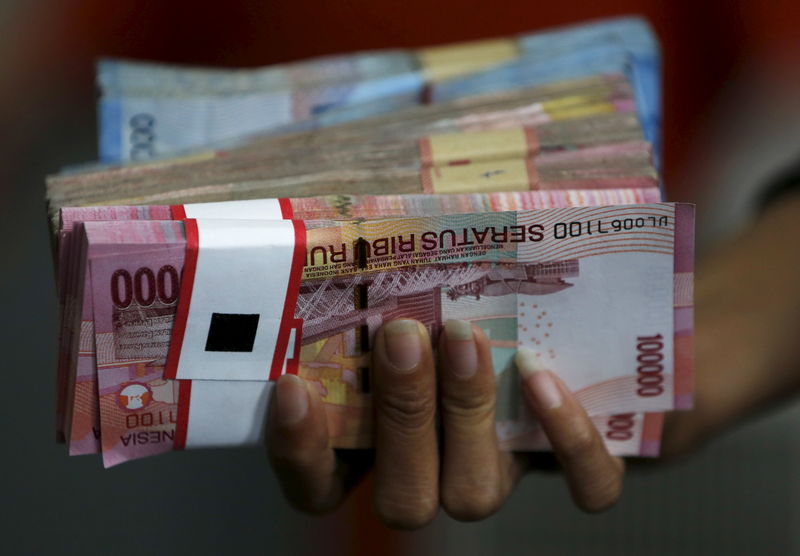By Aby Jose Koilparambil
(Reuters) - Sentiment toward most Asian currencies picked up in the past two weeks, a Reuters poll showed, amid positive signals that trade tensions between the United States and China waning.
Hopes of a resolution gained momentum after U.S. President Donald Trump said a deal could be signed by the time Asia-Pacific Economic Cooperation (APEC) meetings take place in Chile in mid November.
U.S. Trade Representative Robert Lighthizer tempered the expectations, saying that the administration was aiming to finalize a deal on the first phase of the agreement in time for the APEC meetings.
Tit-for-tat tariffs imposed by the world's two biggest economies on each other's goods have roiled financial markets for more than a year now and fueled worries about an economic downturn, with the International Monetary Fund forecasting global growth to weaken to 3% in 2019, the slowest pace in a decade.
"The rationale behind the trend (of recent strengthening in regional currencies and prospective further firmness) is the de-escalation of China-U.S. trade tensions to some extent," said Mitul Kotecha, senior emerging markets strategist at TD Securities.
The dollar has come under significant pressure in recent times and that has turned beneficial for the emerging market currencies, Kotecha said.
Investors turned bullish on the Singapore dollar for the first time since April end, and switched to long positions on the Philippine peso since early August.
Bullish bets were back on Indonesia's rupiah as well, after going short in the previous two polls.
Underpinning the broader positive sentiment, investors scaled back short positions on the Chinese yuan , the Korean won , the Indian rupee and the Malaysian ringgit , according to a Reuters poll of 15 respondents.
Short bets on the yuan and the Indian rupee are at their lowest since mid July and mid August respectively, while bearish bets on the won are at the weakest level since switching from long positions in January.
"The central banks (in Asia) keep on easing policy and with inflation remaining low, the inflows into the region will strengthen and that will benefit the currencies," Kotecha added.
On Thursday, Indonesia's central bank cut its benchmark rate for a fourth time since July, as it seeks to spur growth in an economy that is likely to slow this year.
A couple of weeks back, Singapore's central bank eased monetary policy for the first time in three years, as widely expected, while South Korea has kept the door open and Malaysia too might opt for another cut.
Other factors have also contributed to the positive sentiment, with the rupiah slated to appreciate further on expectations of continued fiscal discipline after Indonesian Finance Minister Sri Mulyani Indrawati retained her position in the new cabinet.
The Reuters survey is focused on what analysts believe are the current market positions in nine Asian emerging market currencies: the yuan, the won, the Singapore dollar, the rupiah, the Taiwan dollar , the Indian rupee, the Philippine peso, the Malaysian ringgit and the Thai baht .
The poll uses estimates of net long or short positions on a scale of minus 3 to plus 3.

A score of plus 3 indicates the market is significantly long on U.S. dollars. The figures included positions held through non-deliverable forwards (NDFs).